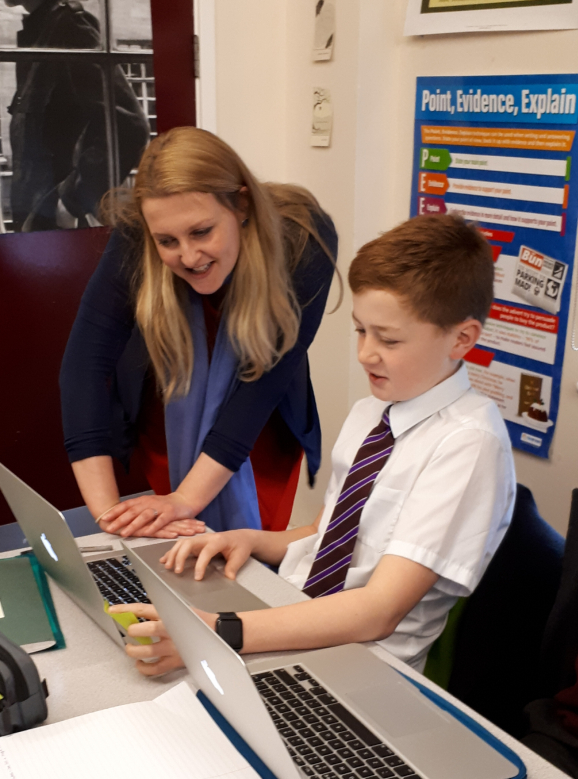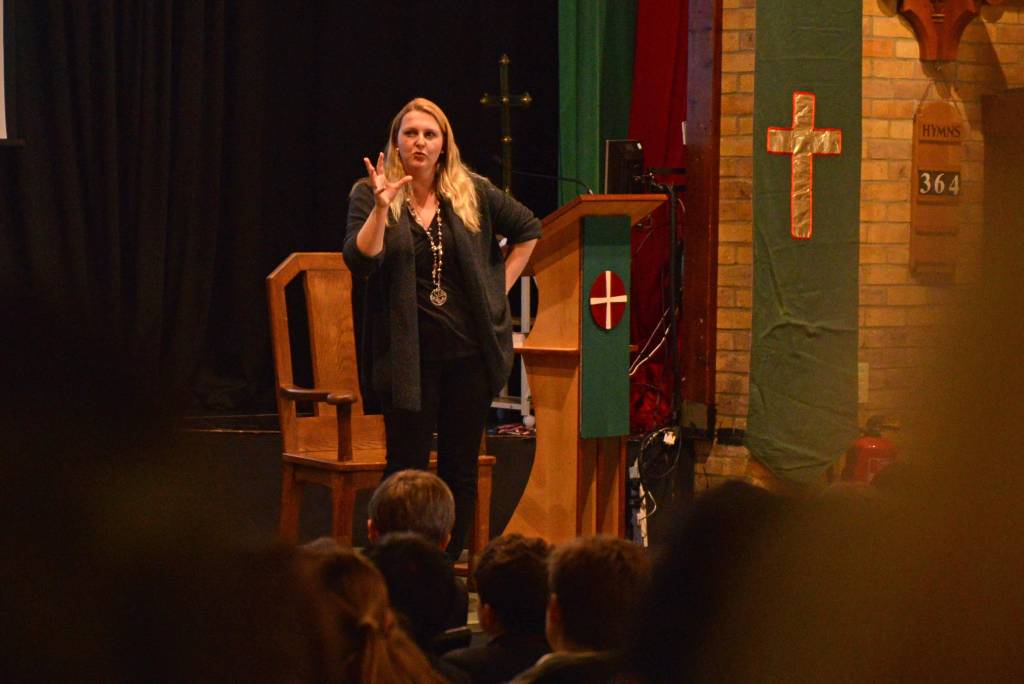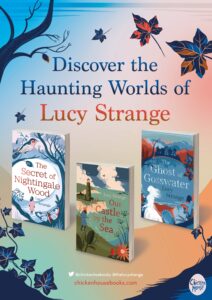This week we talk to award-winning children’s author, Lucy Strange
Q: Hi, Lucy Strange, how are you doing? What are you looking forward to this year?
Hello! I’m great, thank you – looking forward to doing many things in 2021. So many great books to read and hopefully a couple to write too! I’ve got a brand new pair of walking boots that need to do some exploring, so we’ll be getting away for an adventure or two at some point. And I can’t wait to get back out into bookshops and schools, meeting young readers and talking about books!
Q: There isn’t space to list all the awards you have won or been nominated for since your debut novel, The Secret of Nightingale Wood. Now, with three books published, can you pinpoint what makes your writing so successful, or is it something still elusive?
Wow – thank you. When I first started writing, there were several things that I wanted to do with my work. I wanted to write stories that felt like they had been around for a long time, with a ‘classic’ feel, and accessible and engaging for modern readers. I wanted to write stories grounded in reality that were full of magical and mythical possibilities. I wanted to create substantial and beautiful stories that could be enjoyed by children and adults alike – and indeed together.
Q: Early in your career, you worked as an actor, singer and storyteller. Tell us a bit more about this. Were these separate endeavours or a combined act?
After studying English at The University of Sheffield, I trained as an actor at the Oxford School of Drama. Then I worked as an actor, singer and storyteller (among other things!) for several years. I worked in rep and Victorian music hall, I toured schools with Shakespeare plays and took a musical to the Edinburgh Festival Fringe. I loved rehearsals best of all – the creative process of developing characters, bringing a script to life and exploring the language.
All of this has fed into my work as a writer. When I’m writing, I find myself pulling different faces, holding my body in different ways – using my acting training to bring authenticity to my characters and their behaviour.
Q: Then you settled into a more conventional career as an English and drama teacher before moving to Dubai and becoming a blogger. Should we expect you to move on from children’s novels too, at some point?
I think I’ve (finally) found my calling! I loved teaching – it’s a wonderful job, and I’m so proud to say that I spent 15 years at the chalk-face, but writing feels like coming home. When I look back at all the jobs I have done since leaving school (except perhaps being a hot dog vendor), I can see that it all makes sense with hindsight. It has always been about stories.
I didn’t know exactly where I would end up, but sticking with the things I love and exploring my natural interests and talents has brought me to the right place. Having said that, I’m not ruling out writing something for adults at some point. I think that would be a fantastic challenge.

Q: As a teacher, you no doubt learned a lot about what interests young readers as well as training them how to critique works of fiction. Did you draw on this knowledge in creating your own children’s books, and, if so, is it a big advantage?
Absolutely. I am keenly aware of the audience I write for, the sorts of things that will grip and interest them, immerse them in a story and make them think. A lifetime of reading, studying and teaching literature means that I set myself high standards for the quality of my prose. I vividly remember being 12 years’ old and the feelings of powerlessness and frustration when faced with a world that would not yet trust me or give me the independence I was desperate for.
Interestingly, powerlessness is a theme I find myself coming back to time and again in my work. Hen in The Secret of Nightingale Wood is thwarted repeatedly by adults who will not tell her what is going on because she is ‘just a child’. I also think it is very important not to underestimate young readers in terms of the content or sophistication of ideas in a book. Readers of that age are full of curiosity about the world, and they do not want to be patronised.

Q: Your books are classed as historical fiction – The Secret of Nightingale Wood set in 1919, Our Castle by the Sea during WW2 and The Ghost of Gosswater, a spooky tale from the past – but with themes that resonate today. Is it essential to give some modern context to capture a child’s imagination?
Setting a book in the past is always such fun for a writer. It gives you a historical ‘backdrop’ for your story, and there is plenty of fascinating research to be done. The real events of history can spark ideas for the plot, which was particularly the case with Our Castle by the Sea: the beginning of the war, the passing of the Treachery Act in 1940 and Dunkirk’s evacuation, all critical turning points for the characters in the story.
In terms of my style of writing, a historical setting means that the world of the story feels completely solid and convincing, and that makes those magical and supernatural elements all the more eerie and unpredictable – like when Aggie first encounters the ghost of Gosswater on the creepy cemetery island in the middle of the lake. When capturing a child’s imagination, I don’t think it matters whether the story is set now, in the past or a fantasy world. If that world and the characters feel real – living and breathing – that’s all it takes. The themes of good stories – love, power, greed, grief, tolerance, hope – are timeless after all.

Q: 1 in 8 schools across Britain do not have a library – have you had experience of the educational inequality within the school system or met anyone who has?
Yes, both in my work as an English teacher and visiting schools as an author. There can be a huge and shocking disparity between schools, mostly to do with funding for books and libraries. It is heartwarming and heartbreaking to see how individual teachers do their best to make a difference, spending their own money on books for the classroom or bringing in books from home.
Not all children have books at home, and school libraries are essential to close the privilege gap. Lifelong readers have positive early experiences of reading. If they don’t have these experiences at home, school libraries can make a world of difference, particularly when wonderful, welcoming and knowledgeable librarians run them.
Q: What book or books do you think all children in schools should be given to read?
Such a tricky question! I think most adults who read for pleasure will have a particular author or book that got them hooked, and it will be different for everyone. That’s why it’s so important for school libraries to be able to offer a broad, richly diverse range of good quality books and for children to have support and encouragement in finding a book they will love.
I think all schools should have The Lost Words by Jackie Morris and Robert Macfarlane. Our society has developed a profound disconnect with nature that is damaging to us and devastating to our fragile planet. This utterly beautiful book is just bursting with the magic of nature.
Q: Ok, so the final question, Lucy Strange – if all the libraries in the world were burning and you could only save three books, what would they be and why?
Aaaargh!! What? Impossible. Um…right, I’d save The Secret Garden by Frances Hodgson Burnett because it is one of those magical books that has played such a big part in my life, both as a reader and a writer. I’d save something that would sustain me – something big and witty and warmly written, like a Dickens or a Jane Austen or The Book of Ebenezer Le Page by G B Edwards and John Fowles. And I’d have to save one of my books too so that I knew these last few years hadn’t all been just a wonderful dream.
Thank you for visiting our blog. Our vision here at Books2All is a world where every child finds the books that help them reach their true potential. If you have spare books in good condition at home that you think might be appropriate for school children, please sign up for our app’s pre-release waiting list. If you represent a school, please register to receive books for your students.

